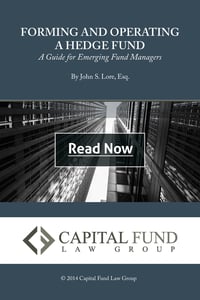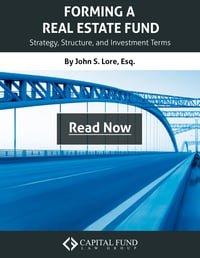The SEC’s adoption of Rule 506(c) to allow general advertising and solicitation for private placement offerings has left us with some questions of practicality. We know from Rule 506(c) that issuers must take “reasonable steps” to verify the accreditation status of investors. We also know that the most non-invasive means of verifying that an investor is accredited is through obtaining written certification from a licensed professional, (attorney, CPA or broker/dealer) stating that the professional has reviewed documentation demonstrating that the investor meets the accreditation standard, as was set forth by the SEC. See the Capital Fund Law Group post on the adoption of Rule 506(c) here. But where can we find professionals willing to verify accreditation?
Who Will Locate the Certifying Professional?
If each investor is expected to independently locate a willing CPA, attorney or broker/dealer, delays are likely. Professionals unfamiliar with securities law will likely be uneasy about potential liability in an untested arena. For some investors, the complexities of reviewing private placement memorandum, operating agreements or limited partnership agreements, and navigating a detailed subscription agreement is almost too much to ask, but to ask an investor to find its own certification professional seems unfair and impractical.
Rule 506(c) is silent as to who can pay for the verifying professional. Nothing in the rule indicates that the professional need be independent of the issuer, or have any relationship with the investor. Presumably, the issuing company would be able to engage a single service provider for the purpose of providing verification of the accreditation status of all investors. But who would the issuer call? Rule 506(c) presupposes that licensed professionals would be ready and available to certify accreditation.
A New Cottage Industry
Changes to regulation usually breeds innovation. Firms dedicated to verifying accreditation could create a streamlined verification process involving document reviews and perhaps a routine interview. Depending on whether Rule 506(c) becomes mainstream, the workload for certifying professionals could be substantial, and volume could make verification costs manageable. A number of service providers have developed platforms for investor verification to fill this need.





